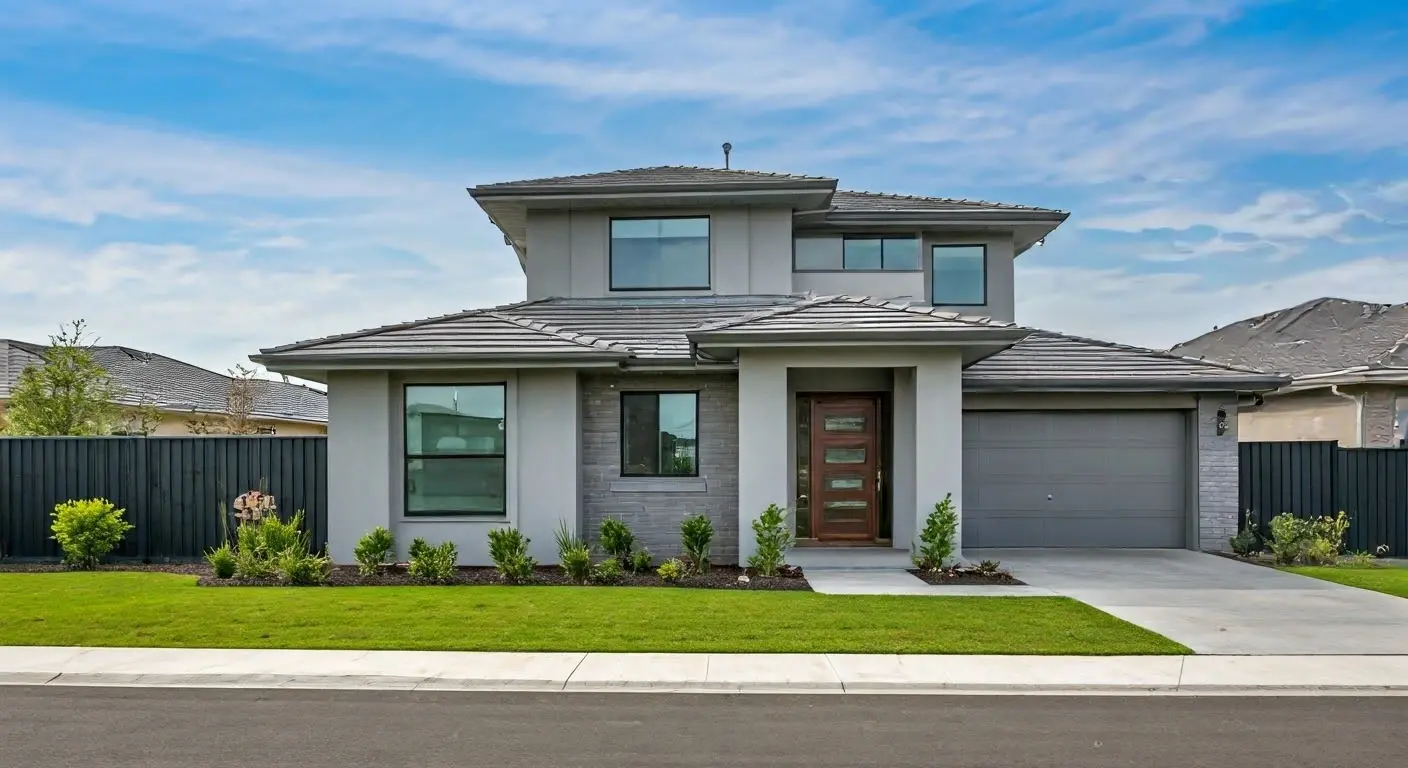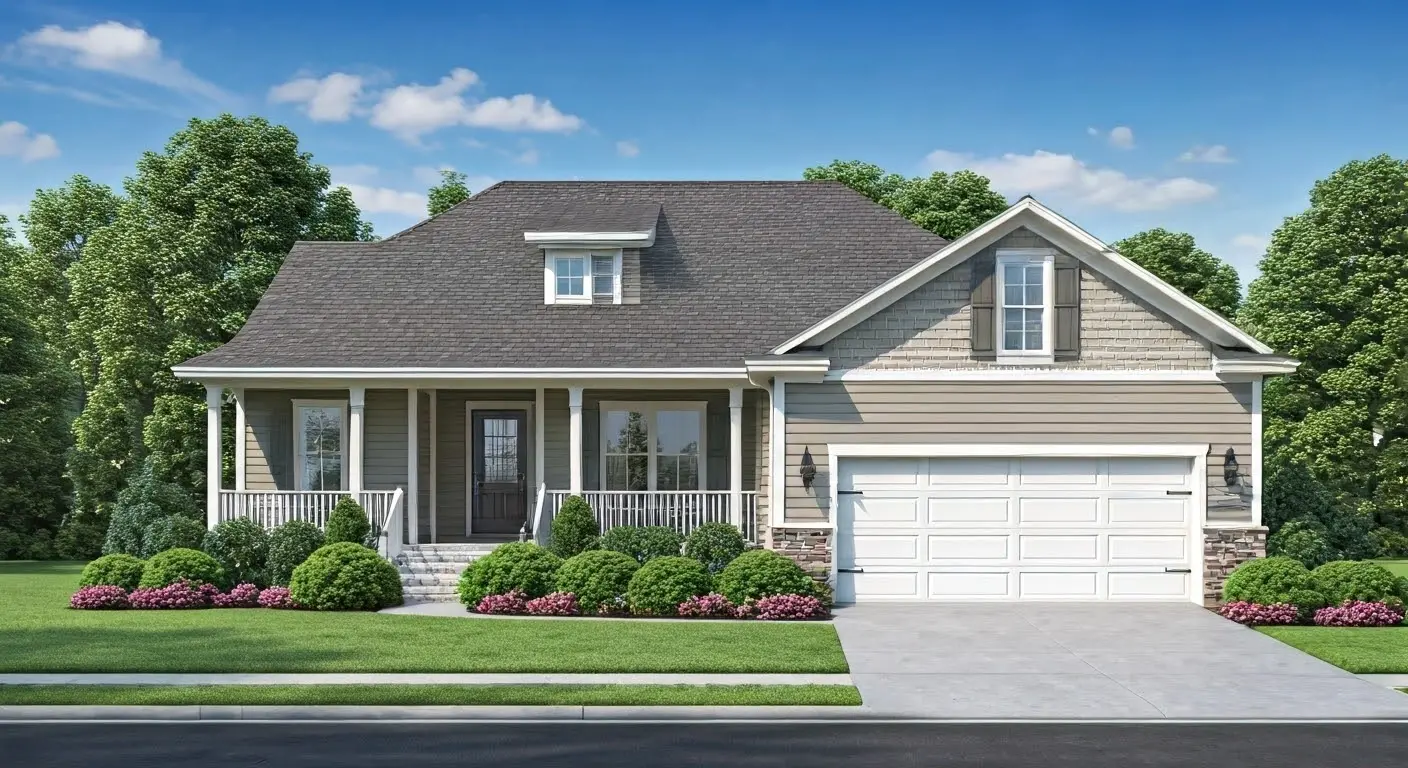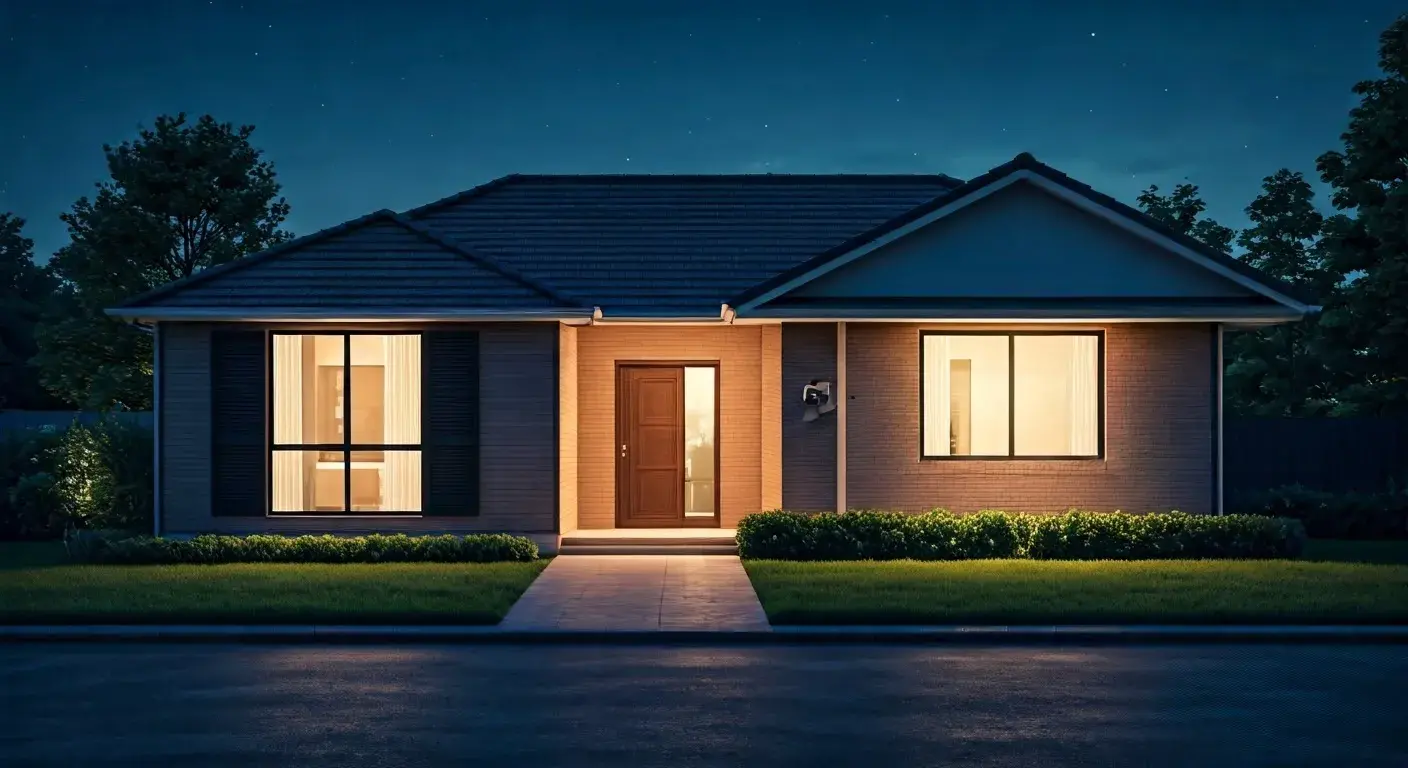Key Highlights
• Protection and Peace of Mind: Home security systems provide a vital layer of protection for your loved ones and belongings, offering you peace of mind.
• Deterrence and Prevention: Visible security measures, such as cameras and alarms, deter potential intruders.
• Smart Home Integration: Many systems seamlessly integrate with popular smart home platforms like Google Assistant and Amazon Alexa for enhanced control and convenience.
• Remote Monitoring and Control: With real-time alerts and remote control capabilities, you can stay connected to your home security system from anywhere.
• Customization Options: Tailor your home security setup to your specific needs and budget, choosing from a variety of sensors, cameras, and monitoring plans.
Introduction
In today's world, home security means more than just locks and alarms. Modern home security systems use smart home technology, including a network of sensors, cameras, and smart monitoring. This gives homeowners great protection and peace of mind. Whether you want to protect your family and valuables or just make your home safer, choosing a good home security system is a smart choice.
Understanding Home Security Systems

A home security system is a group of devices that work together to keep your property safe from threats. These systems usually include sensors, alarms, cameras, and a control panel that manages everything. By placing sensors at doors, windows, and places that detect motion, homeowners can set up strong security around their homes.
Today, home security systems do more than just sound alarms. With smart home technology, many systems connect easily with popular platforms like Google Assistant and Amazon Alexa. This lets users control their security features with voice commands. This connection gives homeowners more convenience and control over how safe their home is.
The Evolution of Home Security Technology
Home security systems have improved a lot over time. In the past, early systems used loud sirens and basic sensors. They were usually connected to a monitoring center using landlines. These early systems worked well for their day, but they had limits and often triggered false alarms.
Today, home security has new technology. Modern systems use wireless communication and can connect to the internet. They use cell phones and Wi-Fi connections to give homeowners real-time alerts and let them control the system remotely. Some systems even include cameras for video surveillance.
Also, DIY home security systems are now available. This makes it easier and cheaper for homeowners to protect their homes. People can set up these systems without needing professional installation or long-term contracts. Now, individuals can manage their home security in a way that fits their specific needs and preferences.
Key Components of Modern Home Security Systems
At the center of every home security system is the control panel. This panel connects and manages all the parts of the system. It gets signals from different sensors placed in your home. When it detects certain events, it can set off alarms or send notifications. You use the control panel to arm, disarm, and set up your security options.
Motion sensors are key to finding unauthorized entry. They are placed in important spots to sense movement in their area. If they detect motion while the system is armed, they will trigger an alarm. Modern motion sensors can tell the difference between people and pets. This helps cut down on false alarms.
Outdoor cameras are also very important for a complete home security system. They have high-resolution image sensors, and night vision, and often allow two-way audio. These cameras offer a strong visual defense against intruders, record proof in case of incidents, and let homeowners watch their property remotely.
Top Home Security Systems in the Market
Picking the best home security system can feel like a big task. There are many choices out there. Some are easy to set up yourself, while others need a professional installation. Each type meets different needs and budgets.
This guide offers a list of highly-rated home security systems. They stand out for features, reliability, and user experience. Whether you want something affordable, a smart home system, or complete professional monitoring, you can find the right system to protect your home.
Features and Benefits of Leading Systems
Leading home security systems today compete with their advanced features and benefits. SimpliSafe is known for its easy DIY setup and strong security options. It offers personalized experiences with many sensors and cameras. Their systems work well with Google Assistant and Amazon Alexa, giving voice control to homeowners.
Vivint Smart Home has a different method. They focus on professional installation and full smart home integration. Their systems do more than just security. They include smart thermostats, lighting control, and voice-activated security features. Vivint's professional monitoring services add extra safety and peace of mind.
If you want affordability without missing key features, the Ring Alarm system is a great choice. It easily fits into Amazon's ecosystem and offers a simple DIY setup, with an option for professional monitoring. Ring has many compatible devices, like video doorbells and security cameras, which come with night vision and facial recognition.
Comparison: Wired vs. Wireless Systems
When choosing a home security system, you'll often encounter the choice between wired and wireless systems. Both offer advantages and disadvantages, and the best choice for you depends on your specific needs and preferences.
Wired systems involve running wires from sensors and cameras to a central control panel. While this provides a more stable connection less susceptible to interference, it requires professional installation and can be invasive during setup.
Wireless home security systems, on the other hand, operate using wireless protocols such as Wi-Fi, Bluetooth, or Zigbee. This eliminates the need for extensive wiring and makes them easier to install and expand. While convenient, wireless systems can be vulnerable to signal interference or disruption.
Customizing Your Home Security Setup

Customizing your home security setup makes sure it fits your home's design, your security needs, and your budget. Pre-packaged security kits can be easy to start with but think about adjusting the system to match your specific needs.
Start by checking your home's weak spots. Look at entry points like doors, windows, and any areas that could be vulnerable. Then, think about how much security you want. Are you mostly worried about intruders, or do you also need features like fire alarms, smoke detectors, or help in emergencies?
Assessing Your Home's Security Needs
Before you invest in a smart home security system, it's important to think about what your home needs. Start by spotting any weak points and security risks. Look at where your home is located, the neighborhood around you, and the different ways someone can enter your property.
Then, decide how much professional monitoring you are comfortable with and what fits your budget. Some people like having 24/7 professional monitoring. This means trained security people will get alerts about any incidents and can call emergency services for you.
Others may choose to self-monitor their systems. This lets them get real-time updates through a mobile app, so they can choose how to deal with any threats. Think about your way of living, your budget, and how much risk you can take when making your choice.
Integration with Smart Home Devices
Seamless integration with smart home devices is a key feature in modern security systems. Being compatible with popular voice assistants like Google Assistant and Amazon Alexa makes it easier for homeowners. They can control their security setup with simple voice commands.
Think about being able to arm your security system or check your camera status with just your voice. Smart home integration is more than voice control. You can set up automated routines to boost your security. For example, you can program your lights to turn on when they sense motion at night or get alerts on your smartphone if a sensor goes off while you are away.
Connecting your security system with other smart home devices opens up many automation options. It helps make daily tasks easier and creates a safer, more convenient home.
Installation and Maintenance Tips
Installing your home security system can be easy. Many modern systems allow you to do it yourself. They come with clear instructions and simple controls. If you don’t feel safe with wiring or tech setups, you can hire professionals to help.
No matter if you install it yourself or hire someone, taking care of your system is important. Regularly clean the sensors. Test the alarms and check the batteries from time to time. This practice helps keep your security system ready to protect your home and loved ones.
DIY Installation vs. Professional Installation
DIY systems allow homeowners to manage their home security without needing professional help. Most DIY home security products are simple to install. They use wireless technology, sticky mounts, and easy mobile apps that help users set everything up step-by-step.
In contrast, professionally installed systems offer expert help and ease. Skilled technicians take care of the entire setup, ensuring all wiring and sensor placements are perfect for your home's needs. Although a professionally installed system costs more, it gives homeowners peace of mind knowing their system is set up properly and works well.
In the end, the best choice depends on your tech skills, budget, and the system's difficulty. If you are good with simple DIY tasks and want to be more involved in your home security, a DIY system may be the best choice for you.
Routine Maintenance to Ensure Reliability
Ensuring your home security system works well means you need to do more than just install it. Like other devices in your home, your security system needs regular care to keep providing good protection.
Start by adding simple and important checks to your home routine. Look over the sensors to see if dust or dirt could block their ability to work. Test your alarms from time to time to make sure they are loud and clear. Also, keep an eye on the battery life of wireless sensors and change them when needed to prevent any gaps in protection.
Get to know the maintenance tips that come with your system in the user manual. By putting a little time into regular maintenance, you can help your security system last longer. This keeps it ready to protect your home and family.
Security System Enhancements
Improving your home security system means more than just using the main parts. You can create extra layers of protection that fit your needs. Think about adding features like better cameras, and sensors for the environment, or connecting with other smart home devices to make your home safer.
New technology has created many ways to enhance security systems. You can use smart facial recognition to add more safety and sensors that can detect small changes in the environment. The options for making your home security better are endless and always changing.
Advanced Camera Technology and Surveillance
Modern security cameras do much more than just record video. They now come with advanced features like facial recognition, night vision, and cloud-based video storage. These upgrades help homeowners understand and manage their home security better.
Facial recognition makes security even stronger. It can recognize people who are familiar to you. This helps let in family members or friends while alerting you about strangers approaching your home.
Night vision helps your cameras keep watch when it's dark. Infrared LEDs light up the area, allowing the cameras to capture clear videos, even without any light. Plus, cloud-based video storage means you don’t need extra devices at home. You can safely access your recorded videos anytime, from anywhere, as long as you have the internet.
Adding Sensors and Alarms for Comprehensive Protection
Creating a complete home security system goes beyond just using basic motion detection. By placing sensors in key areas, you can be kept informed about any possible threats. This early alert gives you precious time to react and seek help if needed.
Start with the basics: door and window sensors. These sensors make a secure boundary around your home. They trigger an alarm if anyone opens a door or window while the system is on. This immediate alert helps deter intruders and gives you peace of mind, especially at night.
Also, think about adding special sensors for better protection. Glass-break sensors can pick up the sound of breaking glass. Smoke and carbon monoxide detectors warn you early if there are smoke or gas leaks. By using different kinds of sensors that match your home's layout and security needs, you can build a strong defense system that protects your home and family.
Budgeting for Your Home Security System
Protecting your home with a good security system doesn't need to be expensive. It helps to know the costs of different systems and look at different pricing plans. This way, you can make a smart choice that fits your needs and budget.
The cost of home security systems can change a lot. It depends on how complex the system is, how many devices you want, and if you need professional monitoring services. Make a list of what you need for security. Look into different providers and compare their prices. This will help you find the home security system that gives you the best value for your money.
Understanding Pricing Models and Contracts
Home security system prices can be different. They usually include the cost of equipment, installation charges, and monthly fees for monitoring. Knowing about these pricing models can help you plan your budget well and avoid surprises later.
Many companies sell equipment packages with monitoring subscriptions. These packages can look great at first because they often show lower upfront prices. However, it's important to read the terms carefully. Pay attention to how long the contract lasts and if there are any fees for ending it early.
Consider self-monitoring options. These can help you save money on monthly costs. While self-monitoring means you have to check alerts yourself, it usually has a lower monthly fee or might even be free. Also, ask about important features included in the monthly fee, like cellular backup for your system. This ensures your home security keeps running even if the internet goes down.
Tips for Finding Deals and Discounts
Finding deals and discounts on home security systems takes some effort and good timing. Many trusted brands have sales, especially during holidays or big shopping events. This is a great option to get a good deal on a quality security system.
Watch for Black Friday deals. Black Friday comes after Thanksgiving and is a great time to find amazing discounts on electronics, including home security systems. Many stores lower prices a lot, offer bundle deals, or even include free installation during this short time.
Look for seasonal promotions. The home security world often has deals that match the seasons. You might see good offers in summer when break-ins tend to go up, or during the holidays, when people buy gifts. Don’t forget to sign up for newsletters or follow your favorite brands on social media. This way, you can learn about ongoing promotions or special deals.
Conclusion
In conclusion, keeping your home and loved ones safe is very important. Investing in the best home security system helps you feel secure. Technology changes fast, making it easier to tailor your setup to your needs. You can assess your needs and integrate smart devices. There are many options to choose from. Don't forget to think about your budget, maintenance, and possible improvement for complete protection. Stay updated on the newest advancements. Choose a system that fits your priorities. Protect what matters most – your home.
Call (888) 805-5456 to choose the best home security system now!
Frequently Asked Questions
1. What to Look for in a Home Security System?
When you pick a home security system, focus on important security features. Make sure it works well with smart home devices. This will help everything work together smoothly. You can also think about getting professional monitoring. This gives you more peace of mind. It's good to have easy access to emergency services too, so you get quick help when it matters. For more safety, consider live guard protection.
2. How Much Should I Expect to Spend on a Quality Security System?
A good security system can cost from a few hundred dollars to more than a thousand dollars. This cost depends on the features you want. To understand the total cost, think about the price of the equipment. Also, consider the fees for monitoring services, options for video recording, cloud storage, and the monthly fee you will pay.
3. Can I Install a Home Security System Myself?
Many DIY home security systems available today are easy to set up and use. They usually come with fast instructions and guides. You can quickly connect them to your Wi-Fi network. This lets you control the system from your smart home devices. If you want extra ease and a professional touch, you can also choose to have it installed by an expert.






